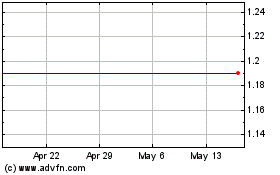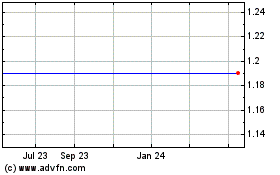News Alert: Indonesia's Bank Mandiri Implements webMethods to Support New Cash Management Offerings
January 24 2007 - 9:00AM
Business Wire
webMethods, Inc. (Nasdaq:WEBM), a leading provider of business
integration and optimization software, today announced that Bank
Mandiri, Indonesia�s largest bank in terms of total assets, loans
and deposits, has implemented webMethods technology as the Unified
Payment Gateway for its end-to-end cash management system. Building
upon webMethods Fabric�, webMethods� fully-integrated product suite
for business process integration, the Unified Payment Gateway
establishes a comprehensive service-oriented architecture (SOA) as
the underlying infrastructure for the bank�s cash management
system. Through this approach, the bank expects to reduce the
development and deployment time associated with bringing new
products and services for payments processing to market. The use of
an SOA will also allow the bank to improve customer service levels
as corporate users can more easily and cost-effectively integrate
with the bank�s cash management system, which reduces processing
and transaction costs for both parties. �As the leading bank in
Indonesia, Bank Mandiri serves many of the country�s largest and
most sophisticated corporations. Due to these organizations�
demanding business requirements, it is critical that they
continually improve their performance and service levels,� said
David Wright, Director of Financial Services, webMethods, Inc. �As
a result, we are excited to be working with the bank in
implementing a service-oriented architecture within their
operations. What this approach offers them is a more efficient
means for creating new and more innovative financial products,
which can be quickly rolled out to market without the need for
extensive development. Ultimately, this initiative is designed to
provide Bank Mandiri with a significant, competitive edge as it
ensures that existing services can be packaged together to address
each customer�s unique and often highly specialized requirements.�
According to Forrester Research [Topic Overview: Service-Oriented
Architecture by Randy Heffner and Larry Fulton (May 16, 2006)],
�SOA is a hot technology for Forrester clients for three reasons.
First, the business benefits of SOA-based flexibility and reuse
have created strong user satisfaction with SOA. Nearly 70% of users
say they will increase their use of SOA, while only 1% of users
will decrease their use. Second, an organization can implement SOA
incrementally, starting with small, near-term requirements and
later expanding its SOA as other business needs arise. You don't
have to invest heavily to build an extensive architecture before
you can see real benefits. Third, enterprises can use SOA to
leverage their existing applications and infrastructure to solve
business problems without having to rebuild everything from
scratch. These three reasons make SOA attractive to IT shops with
post-bubble IT budgets trying to deliver business flexibility via
faster, lower-cost integration and solution delivery.� Bank
Mandiri�s initial deployment of the Unified Payment Gateway was
undertaken in partnership with Pertamina, Indonesia�s state-owned
oil and gas company. Under this initiative, Web services are being
used to speed and simplify integration between Pertamina�s order
management and payment systems and the back office payments
processing offered by the bank�s cash management system. This will
provide each of Pertamina�s service stations throughout Indonesia
with the ability to submit, manage and pay for their sales orders
using their existing Bank Mandiri accounts. Subsequently, Bank
Mandiri expects to use this framework to extend the system�s core
cash management processing engine to all of its corporate customers
in order to further streamline their integration with the bank�s
back office systems. The value offered by an SOA is its ability to
integrate these features within a specific business process using a
simplified �plug and play� approach. Eventually, the Unified
Payment Gateway will serve as the common interface for all
corporate customers, which will allow the bank to accelerate the
shift of these customers to a more powerful and cost-effective
�touchless� fulfillment channel. �Bank Mandiri has demonstrated a
long-term commitment to being recognized as �the trusted and
preferred bank in Indonesia�. We�re extremely proud to support this
mission,� said Eric Lim, General Manager, ASEAN and India,
webMethods, Inc. �By creating a service-oriented architecture as
the platform for its cash management system, Bank Mandiri can now
bring new products and services to market with far greater speed
and flexibility. Through this approach, they�re establishing new
benchmarks for innovation and responsiveness that others within the
Indonesian banking market will be challenged to match.� About Bank
Mandiri Bank Mandiri is the largest bank in Indonesia in terms of
total assets, loans and deposits. It has IDR262.3 trillion (US$25.2
billion) in total assets, representing 23.9 percent of the total
assets of the Indonesian banking system. Through its more than
19,200 employees, based across 1400 branches, Bank Mandiri provides
comprehensive financial services to more than 6 million corporate
and individual customers as well as small and medium-sized
enterprises in Indonesia. The Bank also has six overseas branches
and a subsidiary. About webMethods, Inc. webMethods (Nasdaq:WEBM)
provides business integration software to integrate, assemble and
optimize available IT assets to drive business process
productivity. webMethods delivers an innovative, enterprise-class
business integration platform that incorporates proven integration
technology with next generation capabilities into one interoperable
set of tools that delivers a unique combination of efficiency,
agility and control. webMethods combines industry leadership with a
zealous commitment to customers to deliver tangible business value
to over 1,400 global customers. webMethods is headquartered in
Fairfax, Va., with offices throughout the U.S., Europe, Asia
Pacific and Japan. More information about the company can be found
at www.webMethods.com. The webMethods name and logo are registered
trademarks of, and webMethods Fabric is a trademark of, webMethods,
Inc. All other marks mentioned are trademarks or service marks of
their respective companies.
Webmethods (NASDAQ:WEBM)
Historical Stock Chart
From Aug 2024 to Sep 2024

Webmethods (NASDAQ:WEBM)
Historical Stock Chart
From Sep 2023 to Sep 2024
